Demiurge
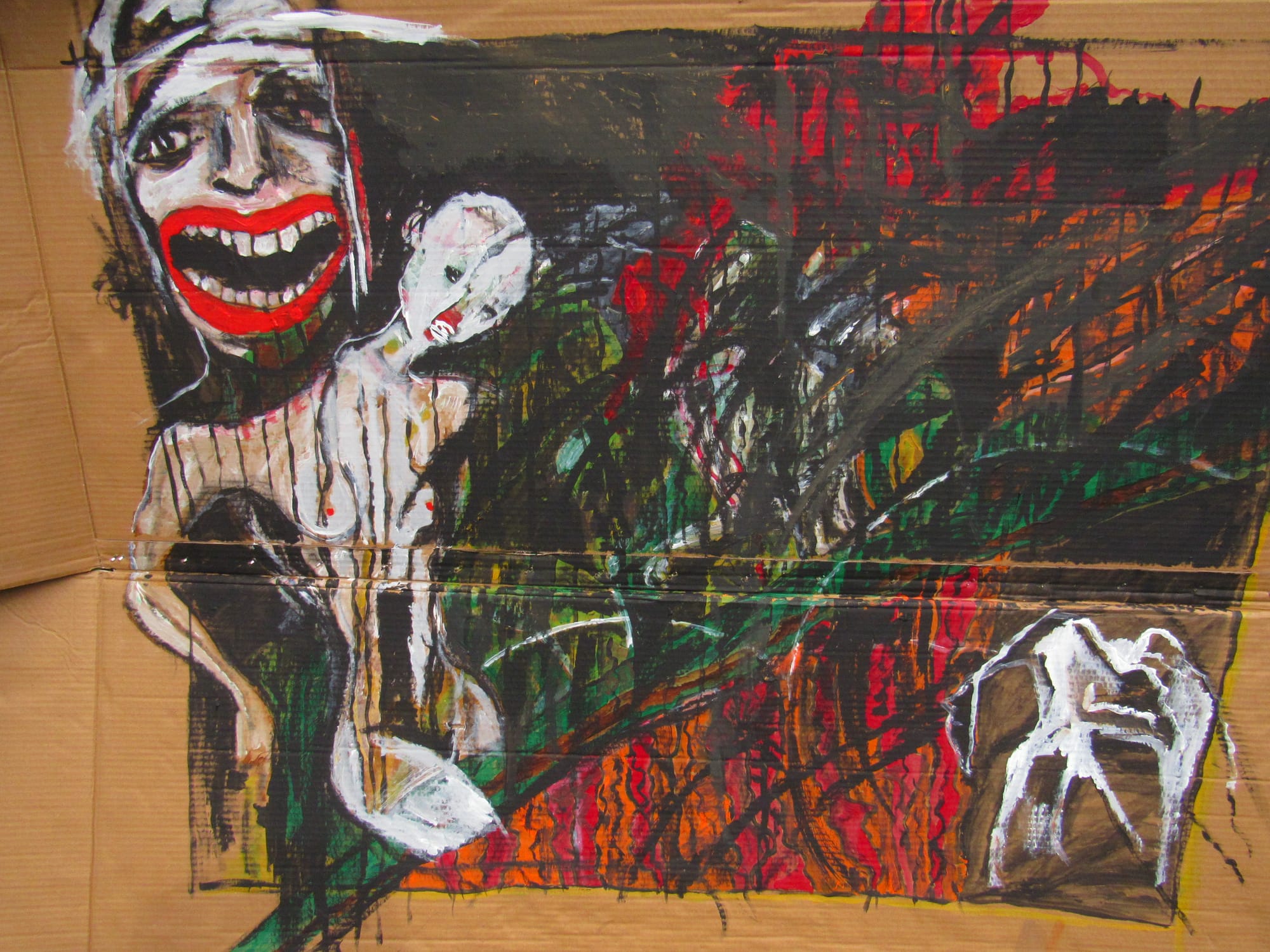
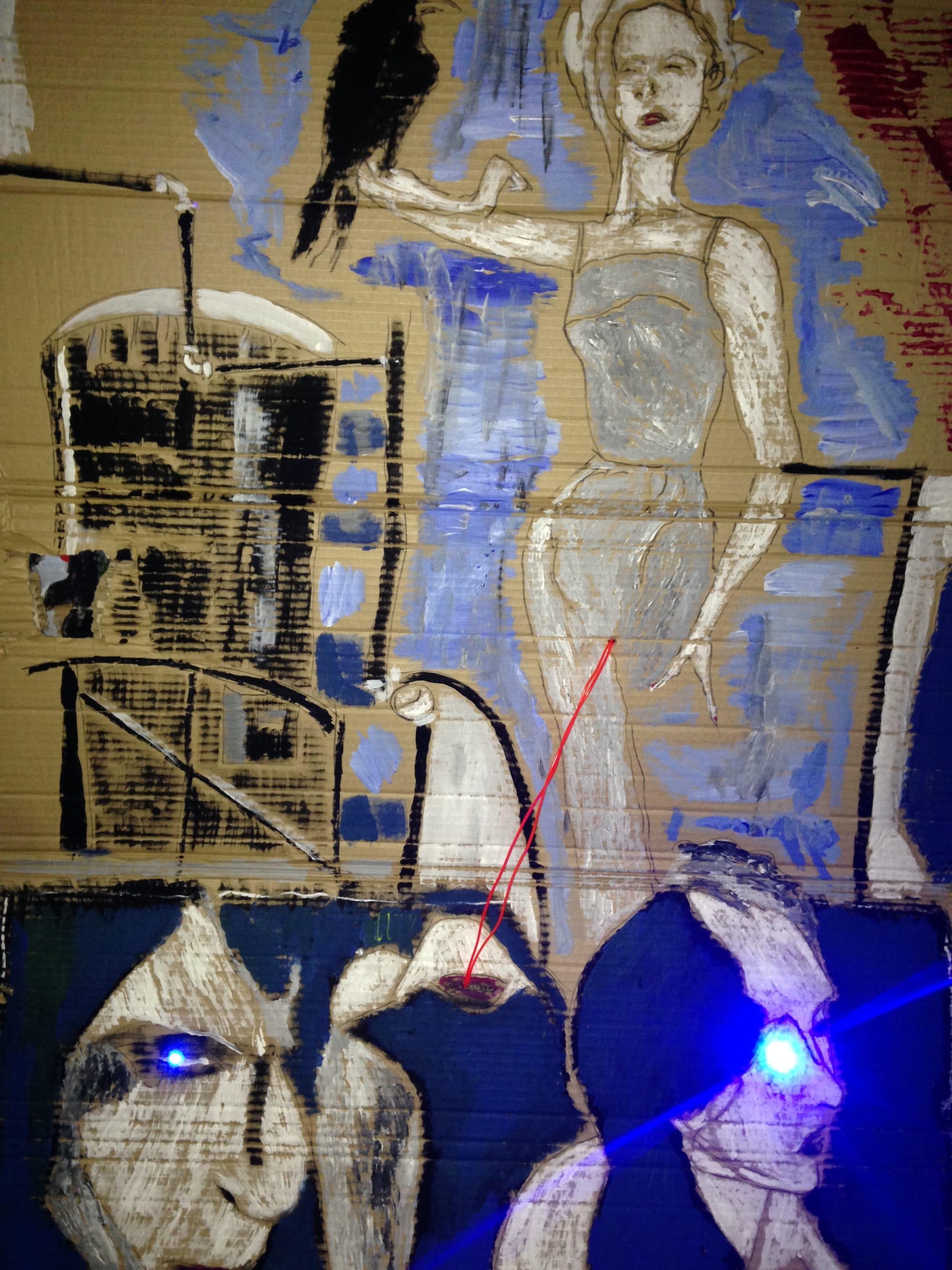
As part of Poem Brut at Rich Mix #6 : November Saturday 9th 2019 organised by the brilliant Steven Fowler the paintings / poem Demiurge was performed.
A video recording can be seen here.
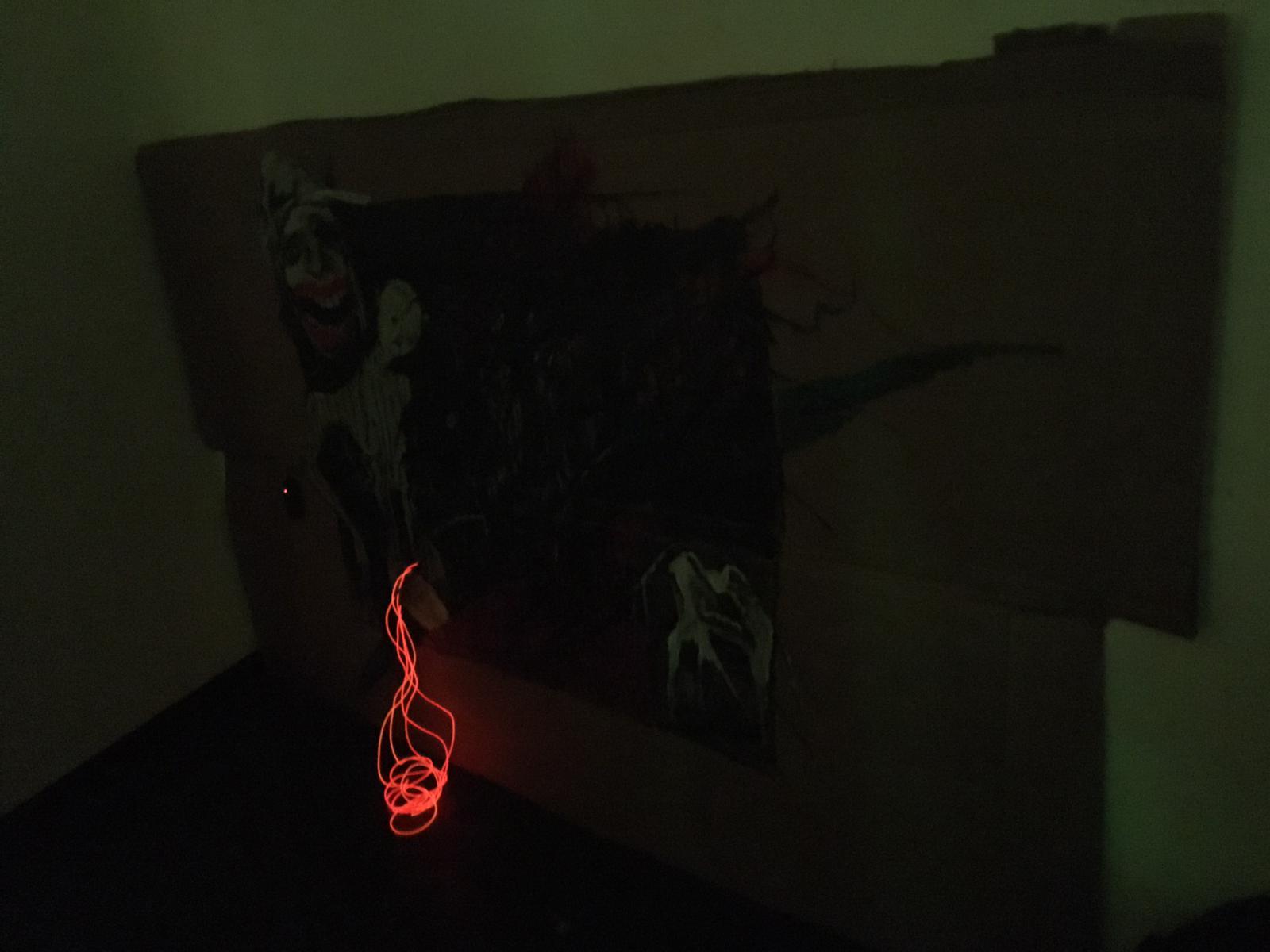
The Demiurge is understood
as a creative character with power and limits.
The first myth is in Plato’s Timaeus
where the Demiurge is the creator of the world
and is a craftsman, an artisan,
the kind of poet who works at her material.
According to this the sensible world is generated,
in contrast to a world of Divine Forms which isn’t.
This world has an origin in time.
Material nature is matter, but the world
is not exhausted by this:
for Plato there is also God and the Forms.
Plato talks of a receptacle not matter.
And this receptacle is turbulent and resistant to the Forms.
Perfection lies elsewhere in God and the Forms.
The created world struggles against this elsewhere,
is a constant rebellion.
Leibniz said, this is the best of all possible worlds
but only the best in its medium.
Compared to the perfect world of the Forms it is terrible.
Answering Aristotle’s complaint that the world
having a beginning made no sense,
seeing no reason why God would decide to create the world
at one time rather than another
the answer came that it wasn’t that the world had an origin
but rather the objects of this world were subjected to time, change and death.
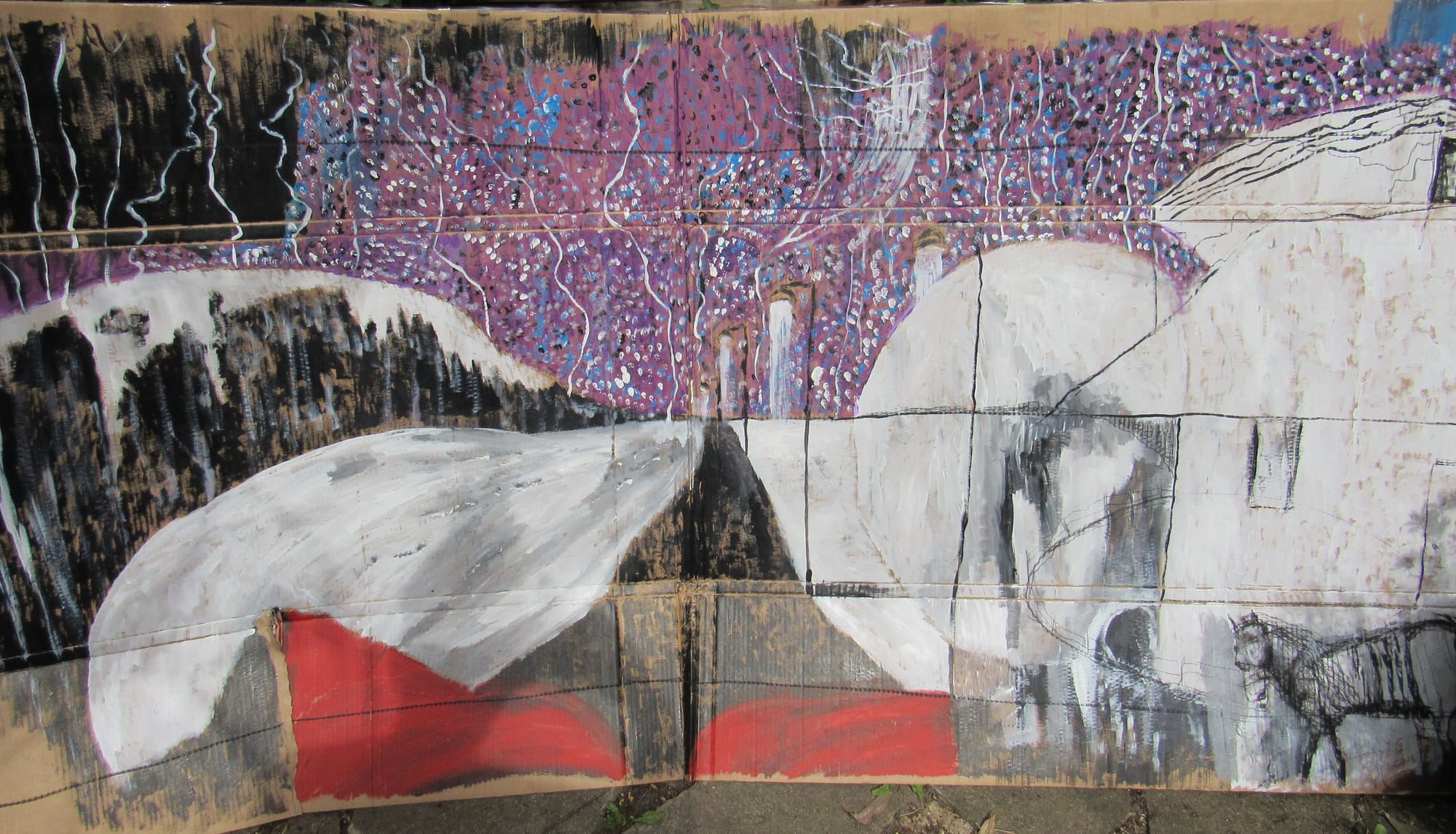
Plutarch, kicked back against trying to reconcile Plato with Aristotle.
The world does have an origin.
Further he said that the receptacle has a malign soul,
contentiously finding evidence for this in Plato’s Laws.
There is an evil world soul alongside a good world soul.
The world created by the Demiurge is an imitation
of the paradigmatic world of the Forms.
In the Timaeus the Forms are separate and
maybe superior to the Demiurge. The Demiurge decides to create
and the Forms dictate what he will create.
In this manner the Demiurge is constrained.
Alternatively, the Demiurge is not constrained
because the Forms are his thoughts.
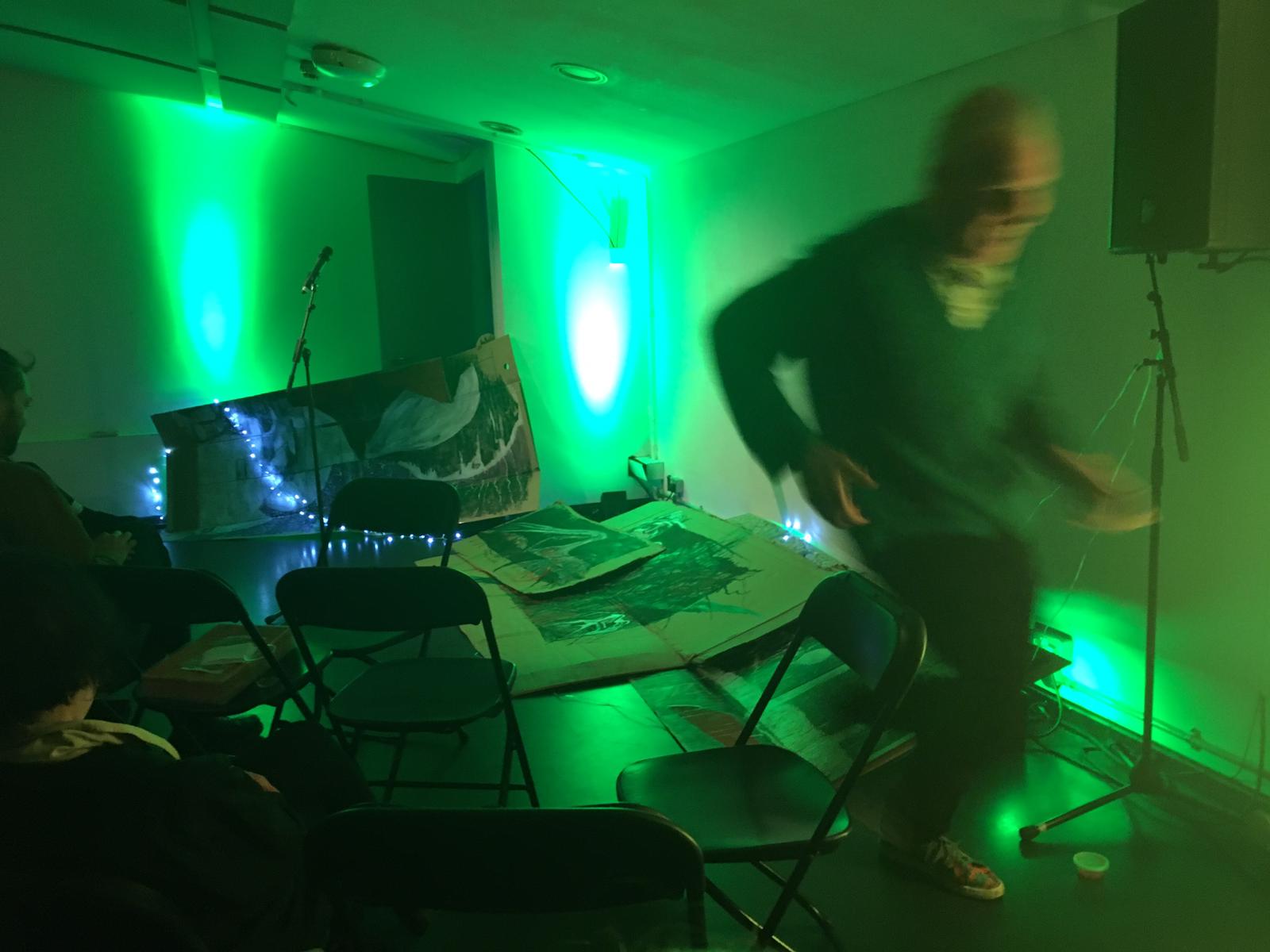
Later the knowledge of the Demiurge changed.
A first, supreme God was thought of as being
in a state of eternal divine repose.
This was not the Demiurge.
A second God contemplated this first one.
The world of Forms comes from this contemplation.
This second mind becomes forgetful of himself and
looks away from the first mind and down
to the receptacle, the world of matter.
Out of this rupture is created the world soul, a third deity.
Plutarch has this splicing into two world souls,
one good and one evil.
It is the second God who is the Demiurge.


This induces an ultimately pessimistic Platonism.
The world soul is created by a mind
that is not true to himself nor is he the first and absolute God.
There can be no promissory note of divine providence,
securing ultimate poetic victory over evil.
Galen is not sure how far his providence extends.
There are evils in the world and he wonders
whether the Demiurge can control and defeat evil,
or even if evils are evil from his point of view.
The world is a creation of a benevolent and powerful deity
who is not entirely in control.
Evil doesn’t defeat belief in God but does defeat the omnipotence of God.
Divine providence for Galen is limited
so fate is a possibility at a level below the moon.
Bodies are available to a mechanical chain of forces but souls are not.
A naturalistic, materialistic mechanism is linked to fate,
and if universalised would rule out freewill.
But freewill exists because souls are free of fate.
Final causes are affirmed even as
the corruption of the material realm is recognized.
The Gnostics adopted this view that the world is metaphysically tragic.

Gnostics saw the world as a divine error.
Their version told of how Divine wisdom, Sophia,
fell away from the Godhead, a victim of arrogance.
It tried to search the High God and failed.
In falling away she created a deformed child, the Demiurge,
who from tears created a world he thought was a copy of divine Forms
but wasn’t.
Instead he had created a prison with the planets as the jailors.
Sophia in her repentance sows seeds of repentance in this world
and anyone born with these seeds are to be saved.
Everyone else, including the Demiurge, will perish.
The Demiurge has soul but not spirit and so is not truly divine.
The Ophites were snake worshippers.
Little is known about them except for a diagram which shows a ladder of ten runs,
of which seven, guarded by the planets, are heavenly gates.
The seven planets are both malevolent and also gateways to heaven and the divine.
The snake is a symbol of the journey
from the lowest to the highest place for the soul.
At the top is the Demiurge – an accursed God
who may be a shadowing
of the atoning, accursed God of Christianity, Christ.

Snakes and ladders has this ancient pedigree.
Deathless Ones came out of chaos and bring increasing complexity
and darker implications.
Eros is one of them,
she ‘…who unnerves the limbs and overcomes the mind
and wise councils of all gods and all men within them.’
Earth stretches from snowy Olympus to dim Tartarus.
Earth gives birth to Heaven/Ouranus for the Gods and Pontus,
a fruitless deep ‘without sweet union of love.’

Earth and Heaven fuck
and from this sweetness come
Oceanus, Coeus, Crius, Hyperion, Iapetus,
Theia, Rhea, Themis, Mnemosyne,
Phoebe and Tethys.
And then comes Cronos,
‘… the wily, youngest and most terrible of her children.’
The progeny of Ouranus are glorious
and frighteningly seething
and only Zeus can check their horrors.
